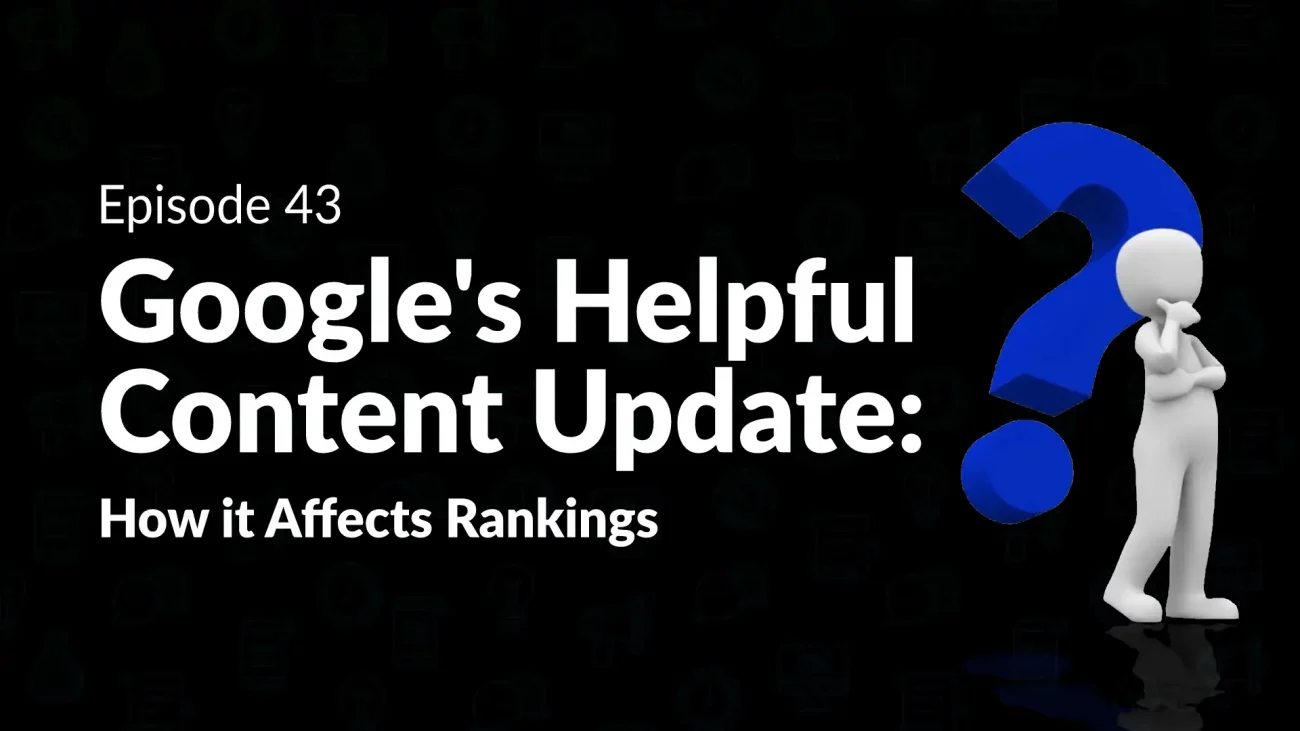Episode 4: Are Your Google Ads Showing in Sanctioned Countries?
In this episode, Hans and Devin explore Google’s decision to allow ads from advertisers in the United States to be shown in sanctioned countries like Iran and North Korea.
Transcription:
Devin: Welcome to Digital Marketing Mondays. On this show, we take you, the marketer, through all of the digital marketing news that you need to be aware of. We help inform you of what’s going on within the marketing space, and then give you thoughts about how you might be able to adjust your marketing strategy to keep up with the marketing world. My name is Devin Littlefield.
Hans: And I’m Hans Riemer. And today, Devin, we’re going to talk about, I’ve got it right here, Google Ads in sanctioned countries. Google Ads showing up in sanctioned countries. What we mean by this…
Devin: Oh man.
Hans: … there’s some countries that the United States currently sanctions presumably because of their behavior. Those countries could be Cuba, Iran, North Korea, Sudan, and Syria. And then a couple of regions as well, Crimea being one and Sevastopol city, which are both parts of the Ukraine that are currently under control by Russia. And by sanctioning these places, the US forbids American citizens and companies from doing business there. But the reason I’m bringing this up is because we see ads from Google, people being charged for ad clicks by Google, for their ads appearing in these places. So I was wondering if you could maybe shed some light on what is going on here. Okay?
Devin: Yeah. And it’s a hot button topic that Wired wrote about not too long ago. And basically it was shedding light on this idea, that there are sanctioned countries that the US can’t do business with. And what’s happened is that Google has said, “All right, well, we’re not going to allow advertisers to specifically target or exclude ads from showing within those areas.” They’ve completely made it, effectively, it’s like those countries and those regions don’t exist inside of Google Ads, even though, as you just pointed out a minute ago, ads do show up in those locations.
So it’s definitely a bit of a controversy because there are a lot of advertisers in Google that are probably not even aware that ads are showing up within some of those regions, which for most advertisers I’m going to presume are not ideal for them to be actually showing ads in. So, that’s the reason why it seems hot button and particularly, if you’re an advertiser on Google Ads, go check your location settings right now. Because you may or may not have ads showing there at this point, whether you knew it or not.
Hans: So, you can check if you’re an advertiser, there’s a way for you to check where your ads are showing up, correct?
Devin: Yes.
Hans: And then that’s where you go and then you can spot these and see if you’re paying for clicks from these countries. Right?
Devin: Yep. That’s correct. So yeah, it’s a location setting. You can either look at all locations across your whole Google Ads account or you can go on a campaign by campaign basis to see where they’re showing. What’s a benefit to it is that Google obviously tries to show you that information, so you could enhance your bids for certain locations or try and bid more for ideal target locations. Like if you know most of your business comes from California, then you can up your bids for California versus Florida, which maybe you’ve never gotten a lead from there before. So a quick example, but yes, you can review those, of course, all within the Google Ads platform.
Hans: All right. So if you’re setting up your ads to target California, let’s say, and you find out that they’re showing up in Iran and North Korea, can you go to Google and ask for your money back?
Devin: You absolutely can, though they’re going to obviously come after you and make sure that you don’t allow that to happen again. I don’t think it’s also something that advertisers realize you could actually go get some credit for, but they’re going to point you in the direction of a location targeting setting that will make sure that that doesn’t happen in the future.
Hans: So, you can actually set location settings to prevent your ads from showing up in these places, even though they’re not on a pick list, you can choose to say, “I want to be excluded from these areas.” Is that what you’re saying?
Devin: Yeah, exactly. So at the campaign setting level, there are specific location settings that you can choose from. What makes almost nefarious from Google’s part, I might add, is that it’s under advanced options within your campaign settings. So you have to drill down and you have to know where to look to go see this setting, but within there, there’s a location targeting option that basically, it makes it much more clear of where viewers of your ads must be, whether they are specifically in your target region, that you’re you’re targeting for your campaign or whether they have expressed interest in your target region.
And that’s really what messes a lot of people up because of the fact how many people are interested in the US? A lot of people, including those who were in Iran and North Korea and et cetera, et cetera, which is why they perform the searches, right? And that’s how your ads will show up. And what’s also tricky about it too, is Google does not recommend that option of only targeting by the people in your target location, which is also, I think, a bit of a nefarious tactic on their part. So that’s why, if you are an advertiser and you had ad clicks that came from those locations, definitely go get your money back and change your settings accordingly.
Hans: So what you’re saying is that by default, unless you’d go in there and drill in and by explicitly change those settings, your ads very well may be showing up in these places and Google is not doing anything about it.
Devin: Correct.
Hans: And you’re presumably wasting money, because if you’re targeting some ads and they’re showing up in North Korea, there’s not a lot of North Koreans who are probably going to buy whatever it is you’re selling. So there you go.
Devin: Yeah. They’re probably not going to buy your enterprise software from North Korea. I’m guessing.
Hans: So hopefully, we can save people some money. Be careful, be careful, let the buyer beware, but yeah, just going in there and saying, “I only want to target California,” is not enough to just target your ads in California, I guess, is the rule there. You really need to drill all the way down to the very bottom of the option tree and make sure that you’ve turned off the places you don’t want to show up in. And like I said, you can also increase your bids in places that you want. So therefore, maybe your bids are so low that they’re not going to show up, even in North Korea. I would guess a cost per click is pretty cheap in North Korea, but what do I know?.
Devin: Probably.
Hans: Well, thank you.
Devin: Yeah.
Hans: That’s a good one.
Devin: Absolutely. No, it’s definitely fascinating. So thank you all for tuning in very much, we appreciate you watching, listening, or reading our content. Of course, drop us a line if you have any other thoughts or feedback or topics you may be interested in hearing about, but for more information, you can certainly visit our website, markadvantage.com to find more great content like this. Thanks again, Hans. So I appreciate it. And we’ll see you later.
Hans: Thanks, Devin. Take care.
Devin: Bye.









